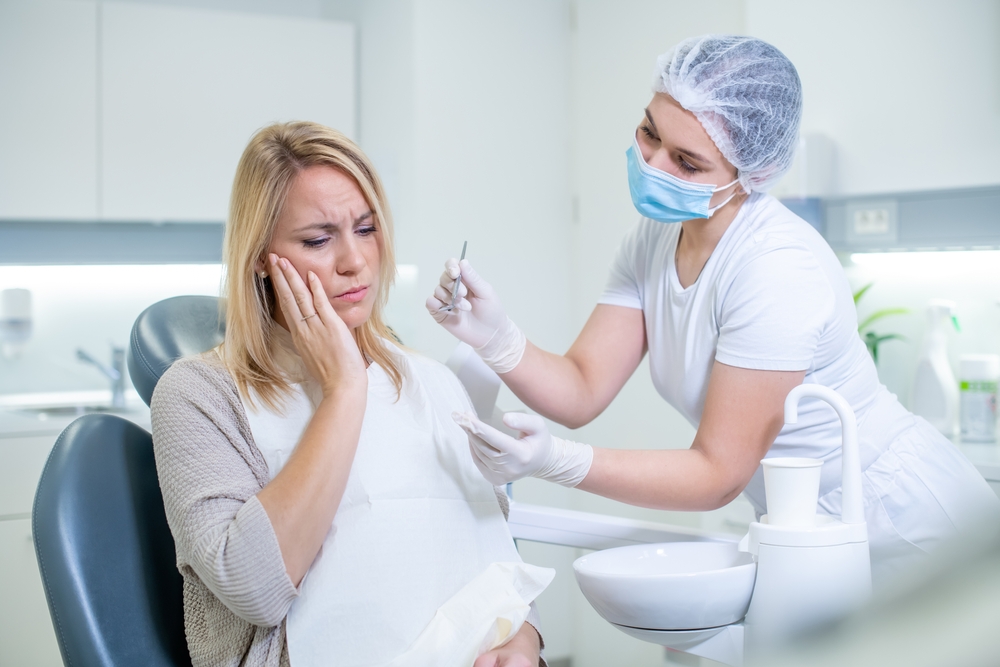A toothache is scary to experience, especially one that comes on suddenly or won’t go away.
Before you panic and assume the worst, keep reading and follow these five proven tips recommended to determine whether you need an emergency toothache dentist in Lexington Park, Maryland!
- Take Some Deep Breaths, Calm Down, and Assess the Situation to Determine Whether You Need Urgent Dental Care
It is very easy to start freaking out if you experience pain in your mouth, causing you to make choices that aren’t necessarily the best for your oral health. When you experience a toothache, take a minute to calm down first.
Then, you can determine whether it’s truly an emergency. Are there other symptoms like bleeding? Do you notice signs of an infection, such as a foul odor or taste in your mouth, swelling, fever, and / or throbbing? Do you know what might have caused the ache? Use this information to determine how you should proceed.
Any fever or bleeding with a toothache needs immediate attention. If you’re unsure, it’s best to call your dentist and ask.
- Understand What Toothaches Are and the Common Reasons They Occur
There are many toothache causes, ranging from benign to severe and requiring medical attention. Something as simple as biting down on an un-popped popcorn kernel can result in pain in your tooth, but a toothache can also indicate tooth decay, an abscess, infected gums, a cracked tooth, or grinding.
- Take an Over-the-Counter (OTC) Pain Reliever and / or Apply Ice for a Toothache
Pain relief should be one of your first steps in managing your pain, especially if you don’t yet need a visit to an emergency toothache dentist in Lexington Park, Maryland.
Take a mild pain reliever, especially if it’s a non-steroidal anti-inflammatory drug (NSAID). Popular NSAIDs are aspirin, ibuprofen, and naproxen. You can also apply toothache drops and gels or a cold compress, however don’t chew on ice.
- Keep Your Mouth Clean With Saltwater Rinses
It might hurt to brush your teeth when you have a toothache screaming at you the entire time. But, it’s no excuse to neglect your hygiene and risk an infection or further inflammation, so brush your teeth as normal.
A saltwater rinse is not only an excellent replacement for mouthwash, it is also fantastic for treating toothaches.
Bring water to a boil, remove it from the heat, add salt, and stir. Then, allow it to cool until it’s comfortably warm. Once it’s the appropriate temperature, take as much of the solution into your mouth that you’re comfortable with, gargle it, rinse it around your mouth for 15 to 20 seconds. Then, spit it out.
- Visit an Emergency Dentist Who Offers Quick Care When Needed
A dental emergency is typically best treated at a dental office, so keep that in mind before you rush to your local ER.
It’s time to visit your emergency dentist if the pain is severe and doesn’t go away in one or two days even after treating it at home, you have signs of an infection, your tooth has been knocked loose or out entirely, the toothache is the result of an injury, or pain is present in your jaw or ears.
Remember that it’s better to be safe than sorry when it comes to your dental health.
Is the Best Emergency Toothache Dentist in Lexington Park, Maryland? Not Quite, But He’s Nearby at Dr. Luke’s Practices in Leonardtown and Lusby!
Dr. Joseph Luke and Dr. Jonathan T. Luke proudly serve Southern Maryland with exceptional dental care, specializing in multiple services to improve your oral health, including emergency visits.
If you’re struggling with a toothache, don’t wait – request an appointment now or call us today at 301-880-4439!


0 comments on “5 Tips From an Emergency Toothache Dentist in Lexington Park, Maryland”